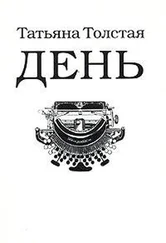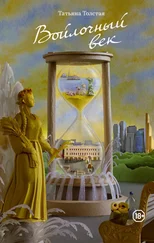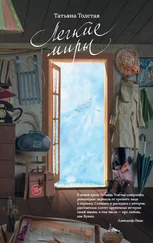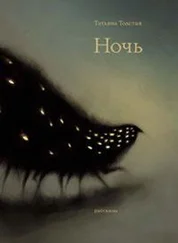Afterwards, the grown-ups explained to us about the bottom of Hepojarvi: at first, everything is smooth and shallow, and then boom! A sharp drop-off, and not just a drop-off but a vortex, with a deep hole, a cave. If you swim above the drop-off, you can get sucked in under its smooth edge, as if under a roof or an awning.
§
Between the world of our parents—books, science, common sense, encyclopedic knowledge and education—and the world of the nannies—fairy tales, myths, fears, superstitions, things that go bump in the night—was the world of the children, who were trying to understand it all, and who didn’t know how to talk about it.
Puzzling things, puzzling people. A soldier, for example. Say the kids overheard rumblings from the grown-ups’ world about how one of the Ninas went out with a soldier late at night and how, uh-oh, nothing good can come of that. Nanny, in an effort to scare us, would say that a soldier was coming to carry us off in a sack if we didn’t behave. This was alarming, and confusing, but alas, there was proof that this practice of carrying off children in sacks existed: illustrations from the folktale “Masha and the Bear,” in which, as we all remembered, there was a bear walking upright and carrying a little girl through a dark forest in a woven basket full of savory pies.
What horror! The soldier, treading slowly, would enter from the back porch of the White House and gingerly take off his sturdy shoulder bag. Where would he take me? And why? What would happen afterwards? Would he throw me in the lake so that I’d get sucked into a maelstrom, my feet bound by silky seaweed? Would he start sharpening his knife? Or maybe, having mysteriously descended from the large, flyspecked photo collage graduates of the Polytechnic Institute, with their mustachioed faces framed in ovals, would cover me in stifling yellow paper so I would start to choke and kick and I’d wake up with my heart pounding, crying, “Nanny! Nanny!”
The room with the dark-green stove tiles and the two errant blue ones had no curtains. I remember that autumnal morning—gold and translucent—when I woke up from the light and, climbing up to kneel on the windowsill, looked out. The world outside was just as it must have been originally conceived: made of gold, quiet, and kindness. A leaf softly fell to the ground. I was around five years old. I had no thoughts. But I did have—from that morning when it appeared, and staying with me till this day—a sense of self, separate from the others.
And therefore what should have followed was an expulsion from paradise, and that’s exactly what came to pass: we left the White House, and the gates that led inside it slammed shut, the way there blocked to us forever.
§
Of course, we all loved our crooked, damp, and absurd dacha. It belonged to us and we could do with it as we pleased. For example, Curly started building—though never quite finished—two more rooms in the attic. Each room did have a door and a window, and some sort of ceiling lining—we needn’t dwell on the imperfections. I claimed one of these rooms and for some reason chose to paint the window frame bright red; the result was quite hideous, and I quickly repainted it white, but the red color still showed through, and so I kept covering it with more and more white paint until the window would no longer close.
I found that I enjoyed painting, and so, until I ran out of supplies, I painted everything I could: window frames, doors leading to the sunroom, thresholds. Even the black prerevolutionary cupboard—an heirloom from Yanson—was painted white, to my mother’s dismay.
Every day we used to buy milk—a big, three-liter container—from one set of neighbors and strawberries from the other set. Initially Mother tried to plant some strawberries herself, but soon gave up on the idea. Yanson had left behind a great farm: it had everything from gooseberries to geese; it had chickens, a piglet, an apple orchard, cherry trees, and even a plum tree, which, for a long time, we considered to be some barren, useless alder tree until it went crazy, as trees are wont to do every few years, covering itself first in beautiful flowers, and then in fruit—inedible fruit, but fruit nonetheless.
He even used to have a cow—Yanson, that is—and so the house had a cowshed attached to it. But by the time the house was in our possession, the shed had long been turned into a large storage space with closets and shelves all along the walls, and there was no sign of it—the cow, that is—she had been forgotten and we don’t even know what she looked like, what color she was, what her name was, if she had calves, and what happened to her: Did she end her days ground into meat patties or did she die of an illness or old age? Only on humid days before a storm, when scents begin to rise from the earth, could you smell the presence of an animal, as if blown in from pastures beyond Lethe, the river of oblivion. Through the small window a ray of light would shine, dust floating in it, neither taking off nor settling, but eternally there, eternally circling, as the cow’s shadow would walk from one dim corner to the other, sighing and treading heavily.
There was a time when basically every house in the community had a cow—aside from the White House, which kept no livestock. But at some point the authorities once again imagined something or other, and directives were issued to chop down the apple trees and to surrender all the cows to the collective farm. The dutiful folk shed some tears, chopped up the trees and the cows—you wouldn’t just hand them over to strangers, would you?—but some, deciding that the monarchy’s rage would subside and that the dark skies would clear, kept their animals on the sly. One neighborhood woman, who truly loved her cow, ferried her by boat to an uninhabited island on Lake Hepojarvi—we used to call it “Lily of the Valley Isle”—and the cow would ramble there, chewing the flowers, confused, while the woman would go every day to milk her: in the morning fog over calm waters, and in the evenings, by turbulent waves out of Turner paintings, with a bucket and clean cans for this white, lily-of-the-valley-scented milk.
§
Yanson didn’t have any children, just a wife—I remember a picture of her with a milkmaid’s yoke, surrounded by chickens, a barn and a pig in the background—and so he was able to devote all his free time outside the pharmacy to the geese and the cherry trees. By contrast, our family had a small child army, and before the youngest had grown up the eldest already had kids of their own. Mother couldn’t keep up with the gardening required, and so the pharmacist’s farm slowly descended into disarray: the apple trees got to be as tall as the pines, the gooseberry bushes grew wild, the Persian lilacs refused to bloom and resembled a mop, the Turkish carnations crept away from their flower beds and we’d find them in the weeds by the fence sometimes.
None of us children liked working in the garden; we enjoyed sitting on the porch in the evenings, playing cards or charades, reading or making up nonsense rhymes, one person writing two lines and then passing the sheet of paper to the next. Sometimes Father would join in and the rhymes would acquire a certain compactness as well as a hint of political sedition.
Mama would walk past us with a pruner or a rake; she would work in the garden till dark, teaching us hard work by example—to no avail, as we never budged from our spots to help her unless she asked, and she rarely did. Occasionally a paroxysm of guilt would overtake one of us and we’d yell in her direction, “Mama, c’mon, I’ll weed there tomorrow!” But she’d impartially answer, “Morgen, morgen, nur nicht heute, sagen alle faulen Leute,” which was German for “Morrow, morrow, not today, that’s what lazy people say.”
Читать дальше






